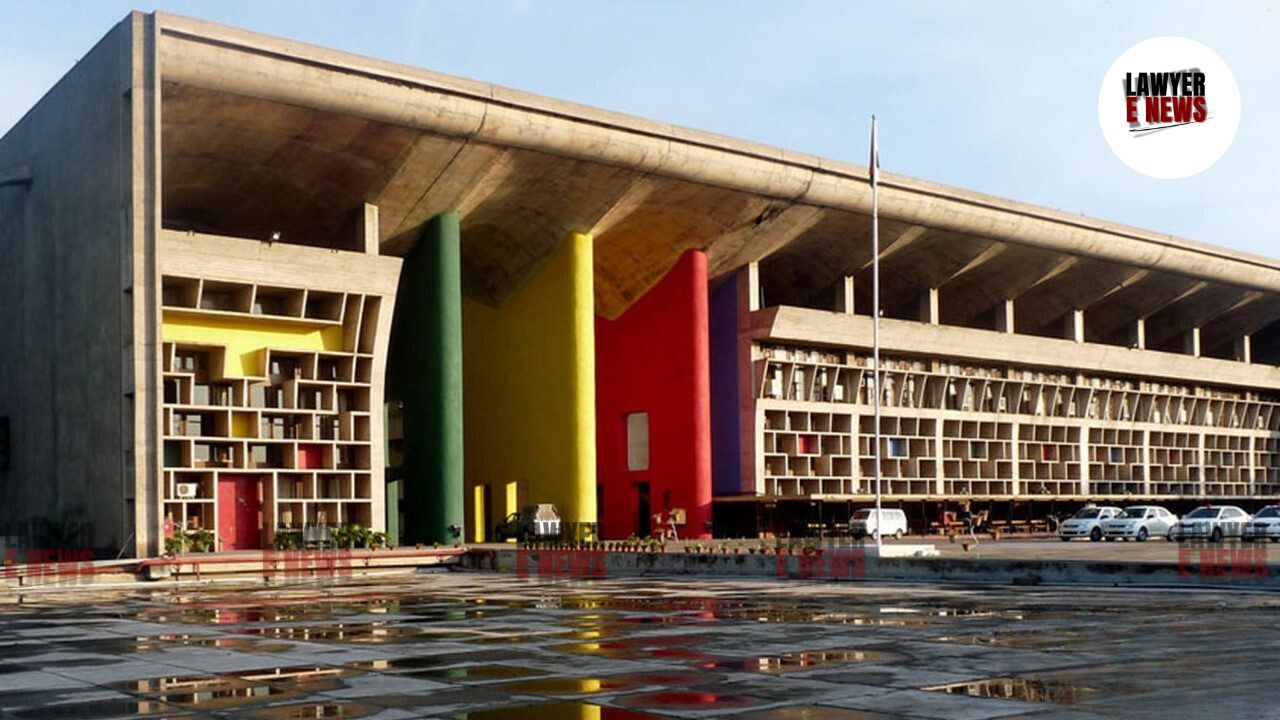-
by Admin
15 February 2026 5:35 AM



The Punjab and Haryana High Court, on October 23, 2024, set aside an order suspending the GST registration due to an alleged lack of a No Objection Certificate (NOC) from the landlord for an additional business location. The Court held that GST rules do not mandate a landlord’s consent for registering additional business premises and emphasized that state authorities should not interfere in landlord-tenant disputes by suspending or canceling GST registrations. This decision underscores the protection of business rights under Article 19(1)(g) and equality before the law under Article 14 of the Constitution of India.
M/s Crystal Beverages, a registered GST entity since 2017, obtained an amendment in 2019 to add an additional place of business. The amended registration was approved based on an Operation and Management (O&M) Agreement provided by the petitioner, which did not require the landlord’s NOC at the time. However, following complaints by the landlord in 2023 regarding unauthorized use of the property, the GST authorities issued a suspension order on July 10, 2024, and a show-cause notice, alleging violation of GST rules due to lack of NOC.
The petitioner challenged the suspension order, arguing that neither the Central Goods and Services Tax Act, 2017 (CGST Act) nor the Central Goods and Services Tax Rules, 2017 (CGST Rules) require an NOC from the property owner for adding an additional place of business.
The respondent argued that the writ petition should be dismissed due to the availability of an alternate remedy under GST laws.
The Court, relying on the Supreme Court’s judgment in PHR Invest Educational Society v. UCO Bank and Others (2024), held that immediate judicial intervention was warranted as the suspension order severely impacted the petitioner’s business operations. Therefore, the writ petition was deemed maintainable despite the existence of alternative remedies.
Requirement of Landlord's Consent for Additional Business Premises
The Court examined whether an NOC or landlord’s consent is required under GST laws for amending a registration to include an additional place of business.
Citing Rule 19 of the CGST Rules, which governs amendments to GST registrations, the Court found no statutory requirement for a landlord’s NOC when adding additional premises to an existing GST registration. The Court clarified that Rule 8, which relates to proof of principal business premises, does not apply to amendments for additional business locations.
The Court held, "The absence of an NOC requirement in Rule 19 indicates that once initial registration is granted, subsequent amendments do not necessitate fresh consent from the landlord."
Impact of Landlord-Tenant Disputes on GST Registration
Addressing the landlord’s complaint, the Court stated that landlord-tenant disputes should be resolved under civil law and should not affect the GST registration of the tenant.
The Court emphasized that taking action on behalf of the landlord would amount to state interference in a private civil dispute, violating Article 14 of the Constitution. The judgment highlighted that allowing landlord disputes to influence GST registration could lead to arbitrary cancellation requests, thereby infringing the business rights of tenants.
"If state authorities align with the landlord in a civil dispute, it would set a dangerous precedent, compromising the tenant’s constitutional right to trade and business under Article 19(1)(g)," the Court observed.
Validity of Suspension and Grounds for Cancellation
The Court noted that suspension of GST registration is governed by Section 29(2) of the CGST Act, which outlines specific grounds for cancellation, including non-compliance with tax regulations and fraud. The Court observed that the petitioner’s compliance with GST provisions and regular tax payments invalidated the grounds for suspension based on landlord consent issues.
The Court held that demanding an NOC for additional premises is beyond the statutory mandate and constitutes overreach by the authorities, concluding that, "There has been a complete non-application of mind in issuing the suspension order."
The Punjab and Haryana High Court allowed the writ petition, quashing the order-cum-show cause notice dated July 10, 2024, and reinstated the petitioner’s GST registration. The Court directed the respondents to refrain from further interruptions in the petitioner’s business operations, affirming that the petitioner can continue operating from both principal and additional places of business.
"There is no statutory requirement under Rule 19 for an NOC from the property owner for additional business locations."
"State authorities must not take sides in civil disputes between landlords and tenants. Any such action undermines the principle of equality and violates the right to conduct business freely."
"If landlord disputes were permitted to affect GST registrations, it would severely impact the tenant’s constitutional right to carry on business under Article 19(1)(g)."
The High Court’s judgment reinforces that GST authorities should operate within the bounds of statutory requirements and avoid intervention in civil landlord-tenant disputes. The decision affirms the rights of businesses to operate without arbitrary interference from the state, particularly in matters outside the scope of GST compliance. This judgment provides clarity on the scope of Rule 19 of the CGST Rules and the limited grounds for suspension under Section 29 of the CGST Act.
Date of Decision: October 23, 2024
M/s Crystal Beverages v. Superintendent, Range 2, Rohtak
